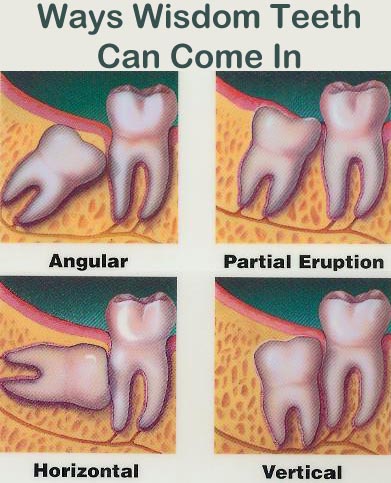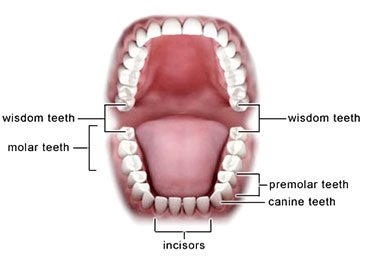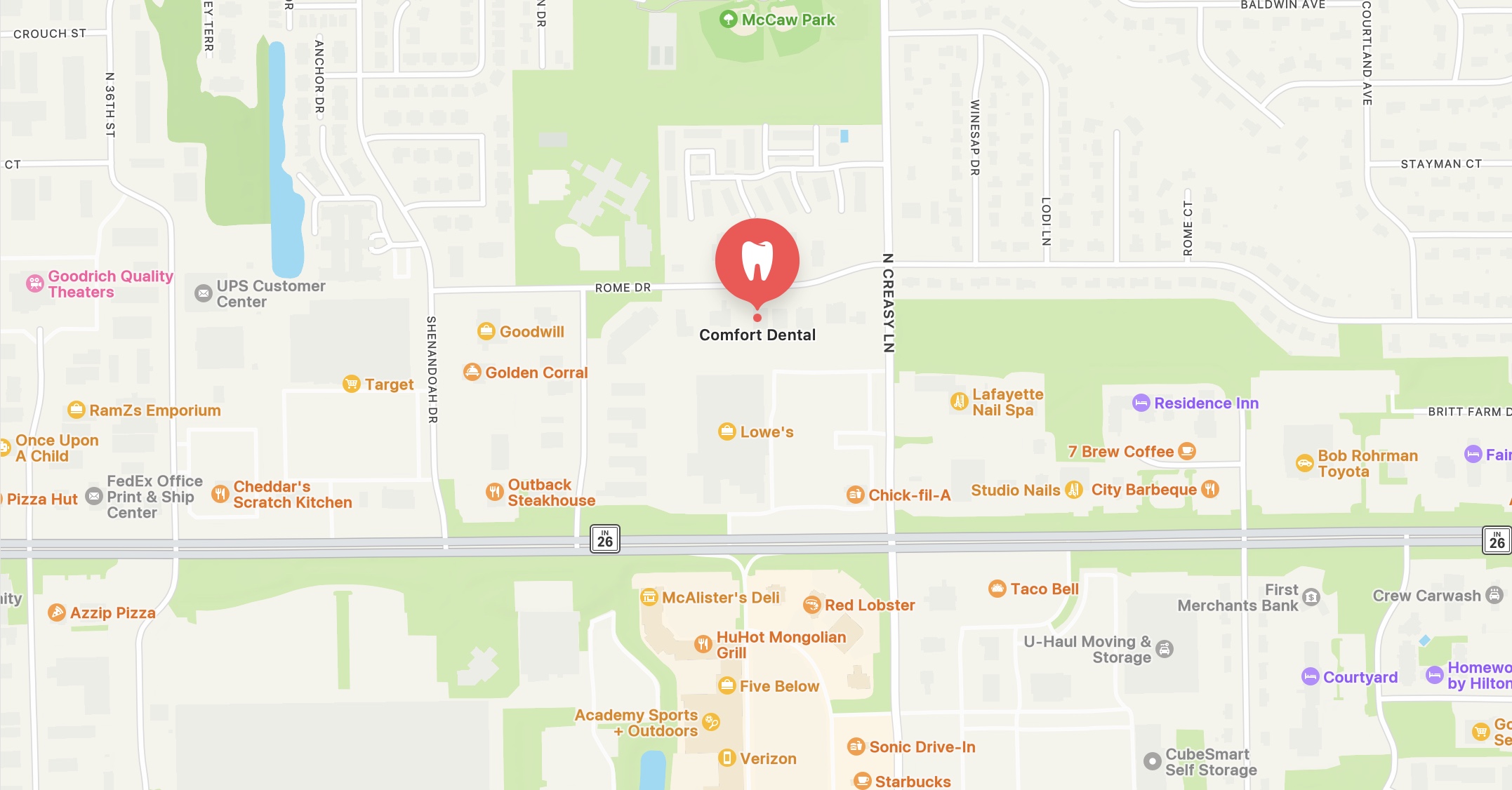 HAVE YOU REACHED THE AGE OF WISDOM? If you are between 17 and 25, the four corners of your mouth may be suggesting you have. Now you may want some insight – should your final molars remain or is the smartest thing for you to have them removed?
HAVE YOU REACHED THE AGE OF WISDOM? If you are between 17 and 25, the four corners of your mouth may be suggesting you have. Now you may want some insight – should your final molars remain or is the smartest thing for you to have them removed?
Let’s Begin With Fun Trivia
Third molars have been called “teeth of wisdom” since the 17th Century and simply “wisdom teeth” since the 19th Century. That is probably a good name for them since they usually appear when a person reaches adulthood and is (hopefully) “wiser” than when other teeth have erupted.
“Wise” But Less Predictable
 Because your third-molars are your last teeth to come in, space for them may be severely limited. They may push into the teeth already in place, becoming stuck as they try to come in. This situation can also prevent them from coming into the mouth in the correct biting position. The term “impacted wisdom tooth” is used to describe this condition.
Because your third-molars are your last teeth to come in, space for them may be severely limited. They may push into the teeth already in place, becoming stuck as they try to come in. This situation can also prevent them from coming into the mouth in the correct biting position. The term “impacted wisdom tooth” is used to describe this condition.
When wisdom teeth are trapped, these molars can cause problems such as infections, cysts, gum disease, crowding or damage to adjacent teeth, and unwanted decay (due to the difficulty in keeping the area clean).
Should You Wait for Pain?
The old saying, “If it ain’t broke, don’t fix it,” doesn’t really apply when discussing your wisdom teeth. It’s great if they are not bothering you, but don’t wait for problems to develop before you take action. This may seem counter-intuitive, but you should know that the best (and often simplest) time to have your wisdom teeth removed is when they are not causing problems.
.
7 Indicators Your Wisdom Teeth May Need to Come Out
Every patient is unique, but in general, wisdom teeth may need to be removed when there is evidence of changes in the mouth such as:
 Infection
Infection- Cysts
- Tumors
- Pain
- Damage (or potential for damage) to adjacent teeth
- Gum disease
- Tooth Decay (if it is not possible or desirable to restore the tooth)
.
Not All Wisdom Teeth Need to Be Removed
Wisdom teeth that are not removed should continue to be monitored, because the potential for developing problems later on still exists. As people age they are at greater risk for health problems and that includes potential problems with their wisdom teeth.
Comfort Dental is Looking Out
As part of regular dental visits, Dr. Brucken and Dr. Stubbs will monitor to determine if your wisdom teeth are healthy and properly positioned. Based on the condition of your mouth, we may recommend removal of any of your wisdom teeth or refer you to a specialist such as an oral surgeon to provide appropriate treatment.
The Comfort Dental Team can help you decide what the best plan of action is regarding your wisdom teeth. Whether or not you have obvious problem symptoms, it’s important to evaluate existing or potential problems with your wisdom teeth. We are here if you have questions and look forward to seeing you soon to make sure all your teeth are doing well!





